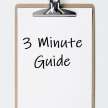10 Habits of Effective Savings
Building a More Secure Financial Future

Introduction
In today's fast paced and uncertain world, saving money has become more important than ever. Cultivating effective savings habits not only helps secure our financial future but also provides a sense of stability and peace of mind. This quick guide explores 10 essential habits that can empower individuals to achieve their saving goals, supported by figures and statistics that highlight the significance of these practices.
1. Setting Clear Financial Goals:
The first habit of effective savings is setting clear financial goals. According to a study by Fidelity Investments, individuals who set specific financial goals were found to save 42% more than those without clear objectives. Defining short-term, medium-term, and long-term goals helps to focus efforts and encourages regular savings.
2. Budgeting and Tracking Expenses:
Creating a budget and tracking expenses is crucial for effective savings. A survey conducted by Bankrate revealed that 58% of Americans do not follow a budget. By allocating fixed amounts for various expenses and monitoring them, individuals can identify areas where they can cut back, leading to significant savings over time.
3. Automating Savings:
Automating savings is a powerful habit that eliminates the temptation to spend before saving. A study conducted by Bank of America showed that 71% of Americans who automated their savings managed to save more than those who did not. By setting up automatic transfers from their income to a savings account, individuals can achieve consistent savings without conscious effort.
4. Prioritizing Debt Repayment:
Paying off debts is a vital habit for effective savings. The National Foundation for Credit Counseling found that 55% of Americans with credit card debt spend less than 15 minutes per month reviewing their financial situation. By prioritizing debt repayment, individuals can avoid or reduce interest payments and free up more funds for saving and investment opportunities.
5. Minimizing Impulse Purchases:
Curbing impulse purchases is an essential habit that helps maintain financial discipline. The Journal of Consumer Research reports that impulsive buying accounts for an average of 84% of unplanned spending. By adopting strategies such as creating a waiting period before making a purchase or making a shopping list before you shop, individuals can avoid unnecessary expenses and direct those funds towards savings.
6. Practicing Frugality:
Embracing frugality is a key habit for effective savings. The Bureau of Labor Statistics found that housing, transportation, and food account for approximately 70% of an average household's overall expenditures. By being mindful of spending and seeking cost-effective alternatives, individuals can significantly reduce these expenses and allocate more towards savings.
7. Investing Wisely:
Investing wisely is a habit that allows individuals to grow their savings over time. According to the S&P Dow Jones Indices, the average annualized return of the S&P 500 index from 1928 to 2022 was around 9.8%. By educating themselves about different investment options, diversifying their portfolio, and seeking professional advice if needed, individuals can harness the power of compounding and make their money work harder for them.
8. Seeking Discounts and Coupons:
Actively seeking discounts and using coupons is a habit that can lead to significant savings. A survey by RetailMeNot found that 96% of Americans use coupons, with the average savings per coupon being $2.72. By leveraging discounts and coupons when shopping for necessities or even larger purchases, individuals can save substantial amounts of money over a period of time.
9. Planning for Emergencies:
Preparing for emergencies is a habit that safeguards savings. The Federal Reserve found that 37% of Americans would struggle to cover a $400 emergency expense. By setting aside an emergency fund equivalent to three to six months of living expenses, individuals can avoid dipping into their savings or going into debt during unforeseen circumstances.
10. Regularly Reviewing and Adjusting Strategies:
The final habit is regularly reviewing and adjusting saving strategies. As circumstances change, it is essential to reassess goals, budgets, and investment plans. By periodically reviewing financial habits and seeking opportunities for improvement, individuals can optimize their savings and ensure they are on track to achieve their objectives.
Conclusion:
Developing effective savings habits is crucial for building financial security. The ten habits outlined in this quick guide provide a roadmap for individuals to take control of their finances and achieve their saving goals. By adopting these practices and implementing them consistently, individuals can enjoy the peace of mind that comes with a more secure financial future.
About the Creator
3MinuteGuide
Quick guide to all matters in our daily life
Visit www.3MinuteGuide.com for latest guide!






Comments
There are no comments for this story
Be the first to respond and start the conversation.